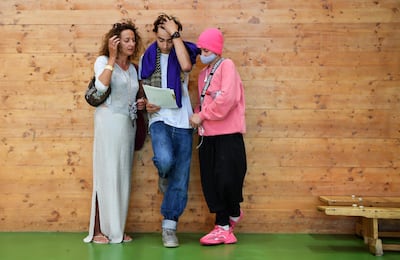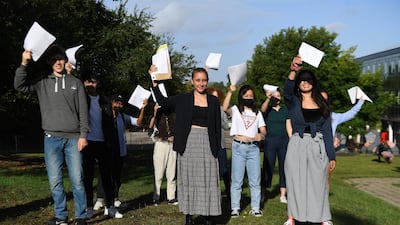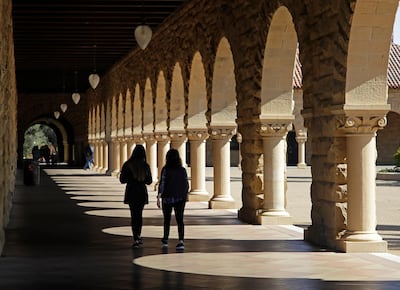Napoleon Bonaparte offered a personal insight into power, politics and psychology: "To understand the man you have to know what was happening in the world when he was 20.” Think about the world when you were 20 and you may understand the sentiment.
From our late teenage years we often begin to pay attention beyond friends and family to the great political events in the wider world. For one generation it was the Second World War; for another the assassination of John F Kennedy, or wars in Iraq and Syria or the migrant crisis.
In my case it was the violence where my family lived in Northern Ireland during what came to be called “the Troubles.” For Napoleon, born in Corsica in 1769, in his teenage years he was stirred by tales of the corruption of the French monarchy. In 1789, by the time he was 20, his life was changed by one of the cataclysmic events in history – the French Revolution. By the time he was in his thirties Napoleon was Europe’s most powerful leader.
Imagine, therefore, what the generation now aged from 16 to 24 make of today’s turbulent events – coronavirus, worldwide economic dislocation, Donald Trump’s presidency, information overload. Perhaps among them is a new figure of potential greatness making his or her way to change the world (although we can do without more Napoleons).

Tens of millions of young people worldwide are leaving schools, hoping for careers, seeking a university place or a job, and are increasingly alert to the events around them. They will also, perhaps for the first time, be taking stock of world leaders they see on TV, those who rise to today’s challenges, and those who don’t.
For most in this generation educational qualifications are hugely important, a defining test for their future, and for many it is not going according to plan. A relative of mine is about to start a prestigious programme at an Ivy League university in the US. But now she is in limbo, waiting in Europe to hear if it is safe to attend classes and lectures. They have been cancelled until the end of the year, at the earliest.
I am chancellor of an English university, and in all British universities staff and student leaders have spent months trying to make sense of how the new term beginning next month will work in practice. A friend at another university has been working shifts from 7am until late, answering queries from worried potential students about exam grades, and what coming to university in these strange times might mean.
In March, Unesco said that worldwide 1.52 billion students were affected by school closures related to coronavirus. In Britain alone there are more than two million students in further education at universities and colleges. Each year more than a quarter of a million school students in the UK take their A-Levels, exams graded to enable them to pursue further education and a career.
With limited or no schooling and no formal exams this year the British government has made a huge mess of the grading system, hitting precisely that demographic Napoleon fixed on as being the most formative of all, those aged around 20.
In my own conversations with some of those affected and their parents – admittedly not a scientific sample – many reflected how hard political choices from governments might in the past have seemed distant from their everyday life, but not any more.
The government of British Prime Minister Boris Johnson used a faulty computer algorithm to set exam grades while failing to recognise that every student is a person, not just a number on a computer code. After heartfelt complaints day after day on social media and elsewhere the Johnson government finally backed down and did the right thing – but only after having exhausted every other alternative.
My guess is that an entire generation is being politicised by these unfortunate events. That doesn’t mean they will vote for any particular political party, but it does mean they are paying attention. Teachers used to suggest that many students were apathetic about politics, focusing on careers, friends, hobbies and interests, paying scant attention to the activities of governments, regarding such matters as irrelevant to their own lives. Not any longer.
The economic, educational and social impact of the coronavirus pandemic is personal. Something which hits you personally inevitably becomes political. When students return to universities, many student union activists in Britain and elsewhere will encourage them to register to vote. Some will campaign on issues that touch them – the environment, racism and Black Lives Matter – but they will also think hard about educational opportunities.
All of them will have been awakened by the impact on their future of Britain’s exam fiasco. This makes me optimistic in these often dark times because politics is too important to be left to politicians. The Covid-19 generation will eventually become a new generation of leaders. I hope this year of real difficulty and hardship will inspire them actively to reject the brain dead politics of 2020.
Gavin Esler is a journalist, author and presenter



